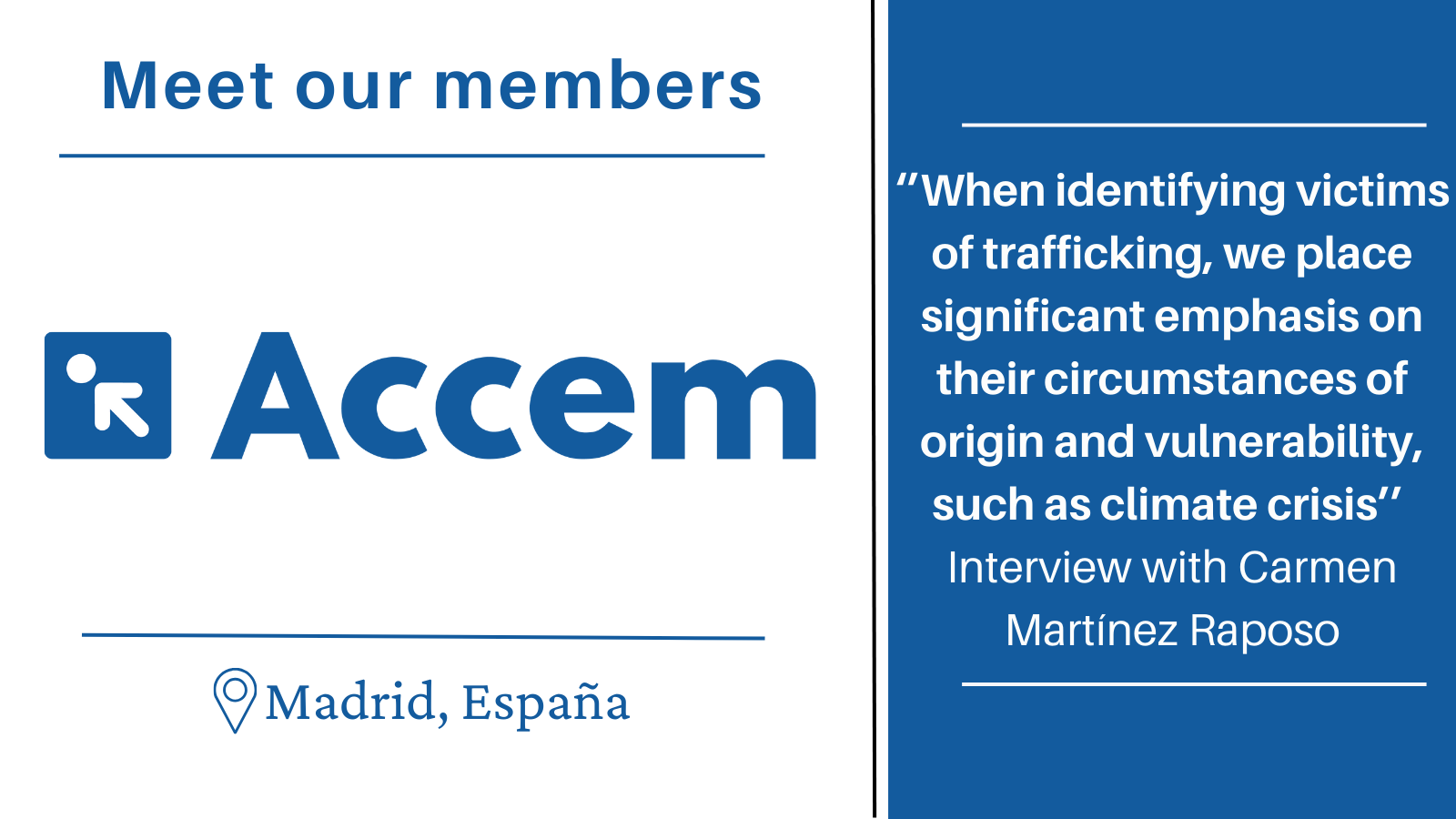Accem is a member of GAATW in Madrid, España who joined GAATW last year. In 2025, Vivian Cartagena from the GAATW secretariat conducted this interview with Carmen Martinez, Human Trafficking Programme Officer in Accem, to learn more about the work of the organisation, the contexts in which it operates, and the communities they support.
Para leer vesión en español, ver aquí.
Vivian: Welcome, Carmen, and thank you for joining us for this interview. I'd like to know the main reasons for deciding to found Accem?
Carmen: Accem was legally established in 1990 at a time when there was a significant influx of migrants, refugees, and asylum seekers in Europe. In that context, it was decided at the state level that it was necessary to create a refugee reception network, and Accem was one of the entities that began working with these types of centres. Accem emerged in a situation where new arrivals faced inadequate facilities, and that's where we began to informally host these groups. Then beginning in 1991, we became part of the network of reception centres led by the Spanish government.
It's important to note that the Balkan Wars were underway during those years, and we began implementing support programmes for refugees returning from the war in Bosnia and Herzegovina. In the late 1990s, we began hosting ethnic minority groups from Eastern Europe, and it was during this time, we opened the first reception centre for unaccompanied migrant children arriving in Spain. Although discussion about unaccompanied minors may appear recent, Accem has been assisting this priority group for many years.
Vivian: Okay, it was a time of great need, and Accem saw an opportunity to work with other organisations to provide support and shelter. When you began this work, what was the main focus?
Carmen: At Accem, the human rights-based approach is integrated across all programmes. From the beginning, our approach emphasises that the people we serve in our programmes are, primarily, rights holders, that they are the main actors, and we are the professional entity that must develop programmes based on their needs, positioning ourselves as bearers of responsibility towards them. As a civil society organisation, we bear the responsibility and play an advocacy role in upholding and ensuring the fundamental rights of people in vulnerable situations. The state also has its own obligations towards them. Therefore, this rights-based approach involves placing the person at the centre of our interventions, taking into account the specific vulnerabilities of each person. At the same time, we recognise that our efforts must extend beyond just people to the surrounding environment. Our advocacy work seeks to change the conditions that make these groups vulnerable.
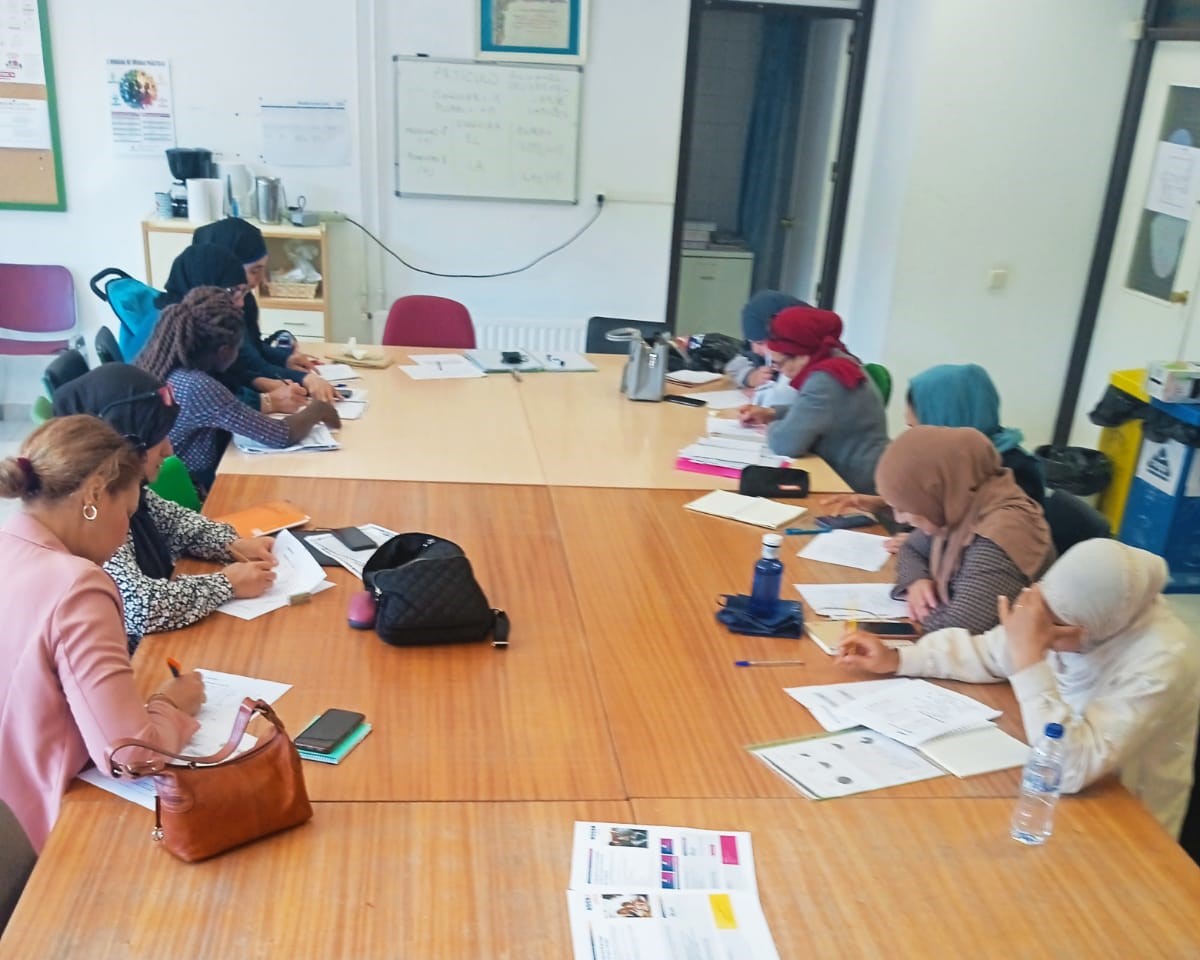
Vivian: You mentioned that some of these interventions are carried out through collaboration with other organisations and institutions. What is Accem's role and what is your line of action?
Carmen: Accem is a very large organisation that employs nearly 4,000 staff members, and operates in 15 autonomous communities and 44 municipalities. This gives us a significant capacity for action and adaptation to each territory. The range of programmes we offer is very broad, with the focus not only on direct care and basic needs but also on comprehensive efforts to support people's empowerment. For example, refugees receive shelter, psychological support, legal advice, Spanish language workshops, employment guidance, and job integration services. These resources are provided alongside leisure and recreational activities, with a gender perspective and respect for the environment. It is also necessary to recognise that contextual differences are important – individuals in the north of Spain may have different needs and circumstances than those in the south. Identifying these distinctions helps us facilitate our networking and support efforts.
Thus, it is important for us to work in large networks like GAATW and also in local networks that enable us to establish a strong presence in the community and collaborate with other institutions in areas that Accem does not cover.
For us, this networking aspect is essential.
Vivian: Indeed, context matters in the work Accem does. In the specific area of trafficking, which part of Spain does this work focus on most, and what is the context within it?
Carmen: The context has changed somewhat over the years. Accem's specific work on human trafficking began in 2006, and we have a fairly well-established track record. One of the initial actions we did in the area of trafficking with other organisations and institutions was to promote the creation of the Spanish Network against Human Trafficking. This civil society mechanism allows us to coordinate effectively with the aim of understanding the situation in Spain. It also helps in identifying available resources and engaging in joint advocacy work. The network is currently made up of about 34 entities working nationwide.
We began our work in trafficking with a focus on networking, but our programmes have evolved over time. We currently have outreach projects on trafficking for sexual exploitation. These projects are designed to detect potential cases and support people in vulnerable situations, specifically in the northwest region. Until this year, we also had another in the southeast. There are two distinct contexts we are dealing with. While both areas are rural, southern Spain is characterised by extensive greenhouses and agricultural fields. This is where cases of sex trafficking and labour exploitation are known to occur. In contrast, the northern region, also rural, has more dispersed points and longer travel routes, which increase individuals' vulnerability.
In the south, for example in Andalucia, we work in irregular human settlements, where migrant communities are linked to work in strawberry and other fruit and vegetable fields. In these places, we have a continuous presence to guarantee people's access to their rights and to detect situations of trafficking for the purpose of sexual and labour exploitation.
Around 2009, we had shelter projects for victims of trafficking. However, the funding model offered by the Spanish government, which consisted of annual grant calls, led us to decide against continuing the process. Nevertheless, we have been seeking funding for a couple of years to address the need for shelter for trafficking victims. This includes not only women who are sexually exploited (there are more resources for these cases), but also women who are victims of other types of exploitation. Additionally, we also aim to provide support for men who are victims of any form of exploitation.
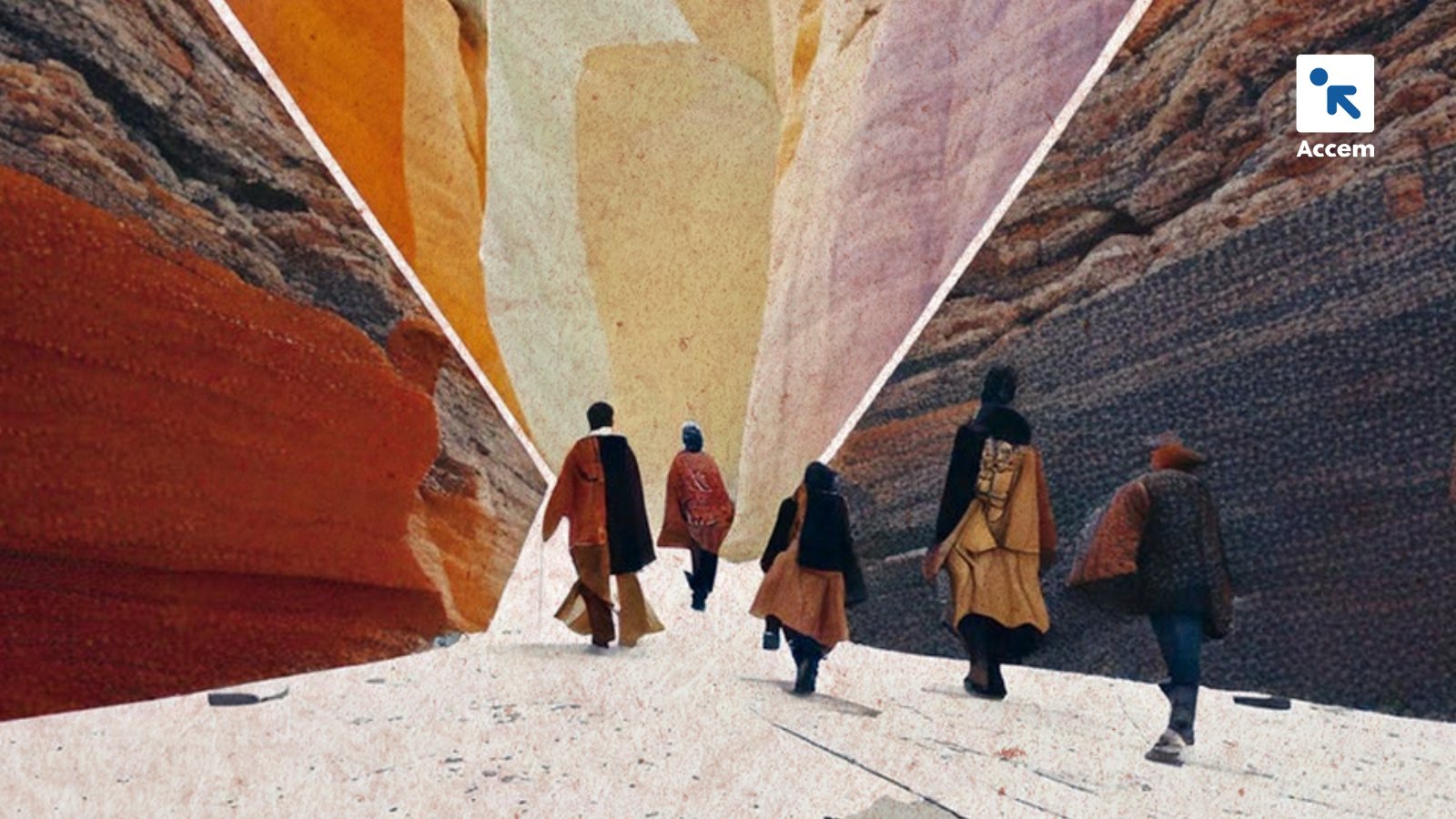
Vivian: Interesting! What are Accem's work dynamics, and how do you manage to include the perspectives of the people you serve in your work?
Carmen: The defining feature of Accem’s work is its focus on training, awareness-raising, and research related to trafficking. Since 2014, we have a project called NOVICOM, which aims to raise awareness on human trafficking among diverse audiences. In some years, we focus more on working with adolescents and young people in schools and institutions. In other years, we concentrate on working with professionals. At times, we also engage with the private sector, but always with the aim of broadening the view of trafficking and ensuring that it is viewed holistically. We also aim to increase the number of people who can effectively detect potential cases of trafficking.
On other occasions, the programme has included working with at-risk migrants to identify themselves through the provision of tools so that those experiencing trafficking or exploitation have the capacity and tools to recognise their situation and seek out protective spaces.
As I mentioned at the beginning, Accem was established with a mission to serve primarily migrants and refugees. Indeed, we are perhaps the organisation that manages the most places in the entire asylum and migrant system in Spain. Within this context, Accem is also tasked to identify potential cases of trafficking in migrants who are in transit, particularly those arriving primarily via the coastal areas. For example, when we evaluate the cases of individuals requesting international protection, we also pay close attention to potential trafficking situations. We have trained teams deployed in all territories where there are trafficking focal points; they are given ongoing training courses and updated information. If a case is detected in any of these programmes, we have an established procedure that includes completing a form that records the signs of trafficking. These cases are managed through our focal points. Based on what we see, we provide these teams with guidelines for intervention or, if necessary, they are referred to another specialised organisation.
Another characteristic that differentiates Accem from other organisations responsible for the prevention and protection of trafficking victims is that we always strive to maintain this comprehensive approach to trafficking. Since 2008, we have been working on the impact of trafficking at the workplace. We were one of the first organisations to publish a report on labour trafficking in Spain, and this has remained a key focus. Subsequently, we have launched publications on how trafficking affects men, and other forms of trafficking that affect women, beyond the much-mentioned trafficking for sexual exploitation.
We have recently started working on human trafficking within the business world and respect for human rights. We believe that in a world as interconnected as ours, it is essential to understand that companies often lose control over what happens within their supply chains and are purchasing products or services from people who are in exploitative situations.
Vivian: I think Accem's approach to trafficking is very important – a comprehensive one. At GAATW, we're also making efforts to broaden the scope of trafficking, going beyond trafficking for sexual and labour exploitation, which are largely recognised.
Carmen: Of course, and there are even combined forms of trafficking.

Vivian: Exactly. For example, we have been carefully focusing on trafficking for forced criminality, which occurs differently in each region. There's a lot of interest in redefining what we understand as trafficking and that's sometimes the biggest challenge. However, I would like to know what are the biggest challenges you encounter in your advocacy work.
Carmen: In the case of women in exploitative labour conditions, the biggest challenge is working in a highly invisible field. Although the dynamics of this type of trafficking have changed in recent years, people know it exists, and it is much more visible now.
Cases of labour exploitation in Spain often occur in the private sector, such as the service industry, domestic work, or in the care sector. Therefore, identifying the instances of exploitation is much more complicated because you cannot do this work by going door to door to detect these situations. What can happen is that a person might visit a health centre, where professionals recognise signs of exploitation and report it to an organisation, and then they can conduct a more in-depth assessment. But in such cases, it is crucial to involve people who are familiar with the human trafficking issues. They can provide insights to help work with the affected person, although the situation remains complex.
We observed that it is easier to detect cases of labour exploitation in agriculture because the Labour Inspectorate is constantly monitoring them and is increasingly aware of human trafficking and can identify it more quickly. In that sector, the intervention is straightforward, but domestic service contexts are rather complicated. Lately, there have also been reports of labour exploitation in the hospitality sector, although these cases remain quite isolated.
It is challenging to recognise the existence of these cases because society also needs to be aware that such situations can occur. We still hold onto the image of women as victims of sexual exploitation who are unable to move about freely and are forced to work 24/7. However, we have yet to internalise that this can happen without necessarily seeing physical signs. As a result, it remains difficult to change the image of the “ideal victim” in the collective imagination of society and of the professionals who can detect these types of situations.
Vivian: In that regard, I would like to understand how Accem navigates the fine line between labour exploitation and trafficking for the purpose of labour exploitation.
Carmen: It is extremely complicated, and I do not think even the authorities are handling it correctly. We have experienced situations where the state forces tell you, "Look, I have 10 victims of trafficking from Senegal." Then our team approaches these people, and it's hard to see the elements of trafficking; it's hard to see that there was that recruitment, that transfer and reception, and also those ‘’means’’. Yes, these people are in a situation of exploitation, but I do not believe that all the elements that ultimately constitute a case of trafficking are present. However, the authorities automatically categorise it as such. In a way, this is better because we would rather have more rights to be guaranteed than fewer.
It is also important to consider that while cases of exploitation in agricultural fields are more widely known, identifying exploitation among platform workers such as Glovo, Uber, etc., is more challenging. We are assisting with cases of people who have suffered labour fraud or exploitation, but they do not recognise it as such.
In that sense, when we serve people and advise them and tell them that they meet the criteria for being a victim of trafficking, we offer our support if they want to initiate a complaint process. But if they do not want to start a legal process, we give them psychological support, among other things. In other words, we always put people at the centre of our work.
Vivian: Recognising the elements of trafficking is complex because the definition of trafficking is currently broader due to new dynamics, which, for example, in the case of internal trafficking, do not necessarily involve the recruitment, transfer, and reception of people. That is, a border crossing, in particular.
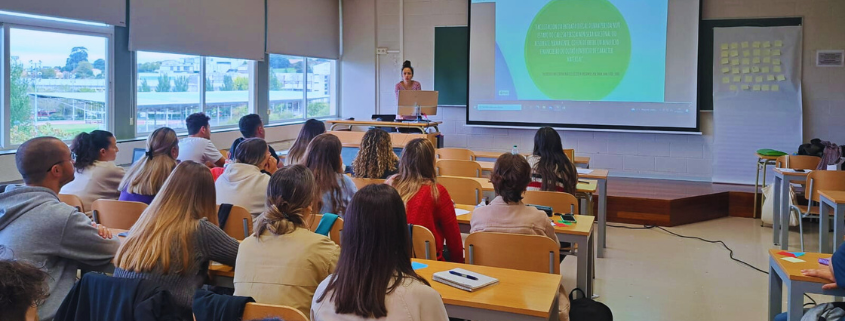
Carmen: With online trafficking, the physical transfer of individuals often does not even happen. As you mentioned, recognising migrants who have come here independently with a migration plan is quite challenging. The vulnerability imposed by the immigration law and the reception system makes it easier for trafficking networks to recruit individuals already in Spain and carry out exploitation. That, for example, is much more difficult for the authorities to recognise. They do not see the historical elements – the recruitment, the transfer, the reception. It is necessary to redefine that concept or provide some flexibility. The Palermo Protocol has been around for 25 years but the world has changed since then.
Vivian: We have been able to see these changes by region. The purpose and dimensions of trafficking in each region respond to different contexts and new actors. In that sense, how do you incorporate these perspectives and experiences from trafficking survivors into your work?
Carmen: That is fundamental because it gives value to the legal text. It is essential to consider everything they set out and analyse whether the elements established in the definition provided in the Palermo Protocol are met. A good practice, in terms of raising awareness among officials that I mentioned earlier, is a process carried out by the Civil Guard, together with the focal points for trafficking – or social partners – around Spain. The Civil Guard organised training for all these partners. It was delivered by civil society organisations specialising in trafficking. There were at least five of us. The valuable aspect of this training process is that they paired the organisations with a social partner with whom we had previously worked on a case. This allowed us to explain to the rest of the stakeholders in the region how the case was handled in collaboration with the authorities and the specialised organisation. In this way, it was possible to offer not only the more police-related aspects, such as the investigation or administrative processes, but also the human rights approach and the dignified treatment of each of the victims, what the process was like, and its follow-up. At the end, the objective was to illustrate that working together is much more beneficial and that it allowed for the identification of cases of malpractice or rights violations. It was very valuable to have a practical and real-life experience with a person who had been identified as a victim of trafficking and how the case was addressed by an NGO and an authority, so that the other stakeholders could see how this work can be done.
Every time we conduct training, we try to include what we have learnt from the survivors' voices and their experiences. We incorporate what they have shared about their journeys, ensuring that our training is not merely theoretical. By combining theory with a person's lived experience, we allow for a more practical understanding of the lessons. Generally, we do not invite or insist that survivors tell their stories unless someone truly wants to participate. Rather, we position ourselves as a platform for those experiences and that is why we promote such spaces. However, if at any point they want to get more actively involved, they are certainly welcome.
The negative aspect in this regard is that, for example, on the European Day Against Trafficking, media outlets contact us wanting to interview us about trafficking and ask if they could speak to a victim. Not that it is wrong to give survivors that space, but sometimes the media tries to use them for their own ends. That is why we are cautious and try to take great care of the people who come to us.
Vivian: Yes, that's very important because it can lead to re-victimisation, since the media often lacks awareness. In this regard, does Accem promote advocacy or participation opportunities for survivors in decision-making spaces, whether municipal or state?
C: Well, we currently intervene in the initial stages of detection, for example, with migrants who are transiting through the country and then continue their journey. Or, if they've been identified as victims of trafficking, we refer them to specialised entities that offer those services. As of today, we don't have our own space where we can work with survivors. In other words, it's not a long-term interaction.
Vivian: I understand. Finally, Accem joined GAATW a little less than a year ago, and we would like to know what you see as the strengths and opportunities you find in belonging to an alliance like GAATW?
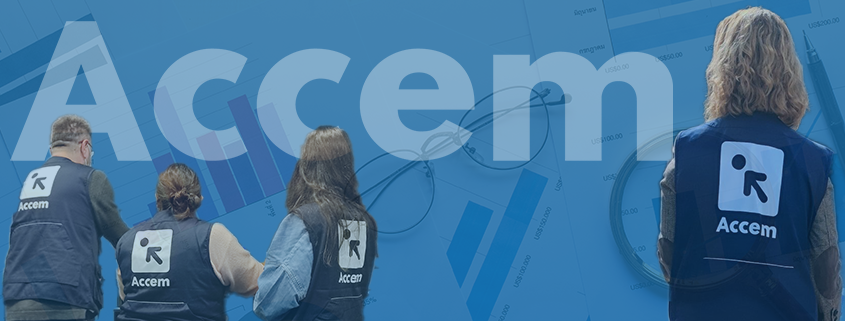
Carmen: For us, it is fundamental. Networking and participation in different spaces is fundamental to the work of Accem in the area of trafficking and everything related to migration.
In relation to trafficking, we are talking about a transnational crime, and we cannot, as an organisation, remain confined to the bubble of what is happening in Spain. Ultimately, participating in an alliance like GAATW allows us to go much further and see what is happening in the rest of the world.
For Accem, this space is the greatest magnifying glass we have on the international scene. While we already work locally, nationally, and even in the European context, focusing solely on these areas means we miss out on important insights. Participating in GAATW allows us to learn a lot about the situations in many of the countries of origin of people who arrive in Spain as victims of trafficking. We can observe ongoing trends and learn about effective practices in other countries. Engaging with organisations that offer new perspectives, use different languages, and do their activities differently is very enriching. Many organisations in Spain are tackling similar issues, but the exchange of ideas and strategies at an international level enhances the value of our work significantly.
Being in this space allows us to be much more innovative with the issue of trafficking. That is why our idea is to bring everything we learn back to Spain. For example, Teresa told us that when she was in Bangkok, you discussed the link between trafficking and climate change on a panel. In Spain, nothing like that had been discussed before. We heard this in other spaces, and decided to bring it to the Spanish context.
We had to start from scratch because no research had been done at all. At Accem, we decided to begin this small study with these three countries which are primarily countries of origin for victims of trafficking in Europe. We wanted to learn what is happening in relation to environmental degradation, forced displacement, and trafficking. We were able to see that territories where there were higher numbers of victims of trafficking were also the most affected by the effects of climate change, or deforestation by companies dedicated to the production of palm oil, for example. Although the report does not conclude with definitive findings – since our primary objective was to explore the current situation and continue deepening our understanding – it provides a foundation for integrating these insights into our work. When identifying victims of trafficking, we place significant emphasis on their circumstances of origin and vulnerability, particularly young women, pregnant women, and individuals from low socioeconomic backgrounds. We are going to include environmental degradation of an origin country as a factor that increases the vulnerability of the person and can be as acute as coming from a region of armed conflict. In our document, we emphasise this vulnerability factor and advocate for it.
Ultimately, what we are looking for is to learn, establish synergies, and work in a much more efficient and innovative way in the fight against trafficking.
Vivian: It is a super interesting analysis, and I invite you to bring it up for discussion in our thematic groups. Within GAATW, we definitely want to explore this issue and see how we can work together on it. Thank you so much, Carmen, for this fantastic conversation!

